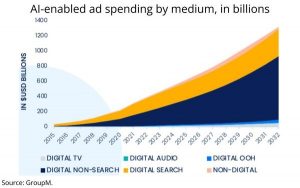At the beginning of the ERP implementation, everyone involved is highly motivated. The project team meticulously records all important business processes and uses them to develop the central requirements for the new ERP solution. The key users drive process optimization and keep their colleagues up to date. And the management ensures that the ERP project and day-to-day business do not get in each other’s way.
But this zest for action usually only lasts until the end of the ERP implementation. After the go-live, the enthusiasm quickly subsides. Many companies expect the ERP solution to run quietly in the background from now on. With the assumption that care and maintenance is also done on its own.
Do not give away valuable potential with this setting, but use an always up-to-date ERP system and the associated advantages for your company. Here’s how:
- Keep up with technological advances
ERP providers are constantly developing their software, eliminating errors and adding new features. This means that an ERP system is continuously improving. Every minor release brings with it optimizations that increasingly support business processes.
In addition, most ERP providers regularly publish a major release version update, which expands the area of application with new functions. This is an important point as the market environment of every company is constantly evolving. This further development is often expressed in new or changed customer requirements. The ERP system has to keep pace with this development if it is to continue to generate added value.
In addition, major releases usually also contain improvements to the user interface. This increases the usability of the system and makes the work of the end user easier.
- You are better prepared for unplanned events
No company exists in a vacuum. Events can always occur that force decision-makers to act at short notice. This includes, for example, legal, political, technical or social factors.
Companies that have neglected their ERP system for a long time are faced with a problem in the event of an unplanned event. Your ERP solution is often not up to the new requirements and the latest software version is missing for a necessary patch
As a result, IT has to install several updates in a short time, check technical adjustments and test accordingly. Of course, this requires free capacities for such an ad-hoc IT project.
Example of legal factors: The GDPR surprised many companies in May 2018 (despite the transition period). According to the regulation, a data subject has the right to request the complete deletion of their personal data. If the database is not properly maintained, the organization will find it difficult to comply with such a request.
If you always keep your ERP system up-to-date, you distribute the maintenance effort over time. This avoids further ad-hoc actions and no longer has to react to unplanned events with high resources.
- Your ERP solution remains compatible with complementary IT systems
An ERP system is almost always part of a network of different software solutions. Most companies have additional IT systems connected to their ERP via an interface.
All of these systems also have patches, updates and version changes. If the ERP system lags behind, this can lead to compatibility problems – especially if there are changes to the databases or the operating system. For example, the connection of a third-party system could no longer work because this requires a certain standard that was only added in a new ERP version.
For this reason, ERP updates often include interface adjustments so that compatibility with third-party systems is maintained.
- Security patches offer hackers less target
Outdated software versions always harbor a core risk for attacks by third parties. The longer a security vulnerability is known, the higher the risk of an attack.
Attacks that take place via the operating system can cause great damage in the ERP area.
An ERP system stores important business data and forms the technical basis for many business processes. The potential for damage from ransomware, data theft or DoS attacks is correspondingly high.
You should therefore always make sure to apply security patches consistently and as quickly as possible.
- You consolidate the ERP competence of your team
In the course of the ERP implementation, your employees will acquire in-depth knowledge of the ERP software. Knowledge learned can fade through special processes, which are seldom implemented in day-to-day business.
Company-wide loss of knowledge is usually only noticeable when ERP competence is needed – and then it is too late.
Regular updates and data maintenance have no direct influence on the knowledge management of a company, but indirectly counteract a loss of knowledge. Keeping an ERP solution up-to-date is not just a job for IT. After every function update, the department concerned must check whether the ERP system is still compatible with its processes. If not, those responsible have to change either the configuration of the ERP software or their own processes.
That means: Regular ERP updates mean that your employees deal with the system on a regular basis. This in turn strengthens the ERP competence of your staff.
- Your data quality does not reach a critical low
Everyone knows: master data is the foundation of every ERP system. Therefore, master data maintenance is an essential part of maintenance – more important than some updates.
The data quality influences the complexity of data maintenance. The more errors the database contains, the more time those responsible have to invest in cleaning up.
An additional factor is the generation of movement data. Example: Your customer’s delivery address is incorrect. The customer places an order and you deliver to the wrong address. The goods never get to your customer, the receipts were misprinted, and you have a disgruntled customer.
From an ERP point of view, the ongoing business processes gradually generated unclean transaction data because the master data was incorrect.
Consistent data maintenance ensures that the maintenance effort does not reach a critical level.
Summary
There are many reasons for irregular ERP updates and insufficient data maintenance: incorrect or completely missing prioritization in system maintenance, high effort due to unstructured system modifications or overloaded employees, to name just a few.
But burying your head in the sand and completely neglecting ERP updates is not a solution either. Be proactive and consider the points mentioned above, because an up-to-date, well-maintained ERP system has many advantages. You close security gaps, increase employee satisfaction and maximize your reliability. And last but not least, you also benefit from new features and functions, for example in the trend areas of AI and Industry 4.0.
Digital & Social Articles on Business 2 Community
(35)



